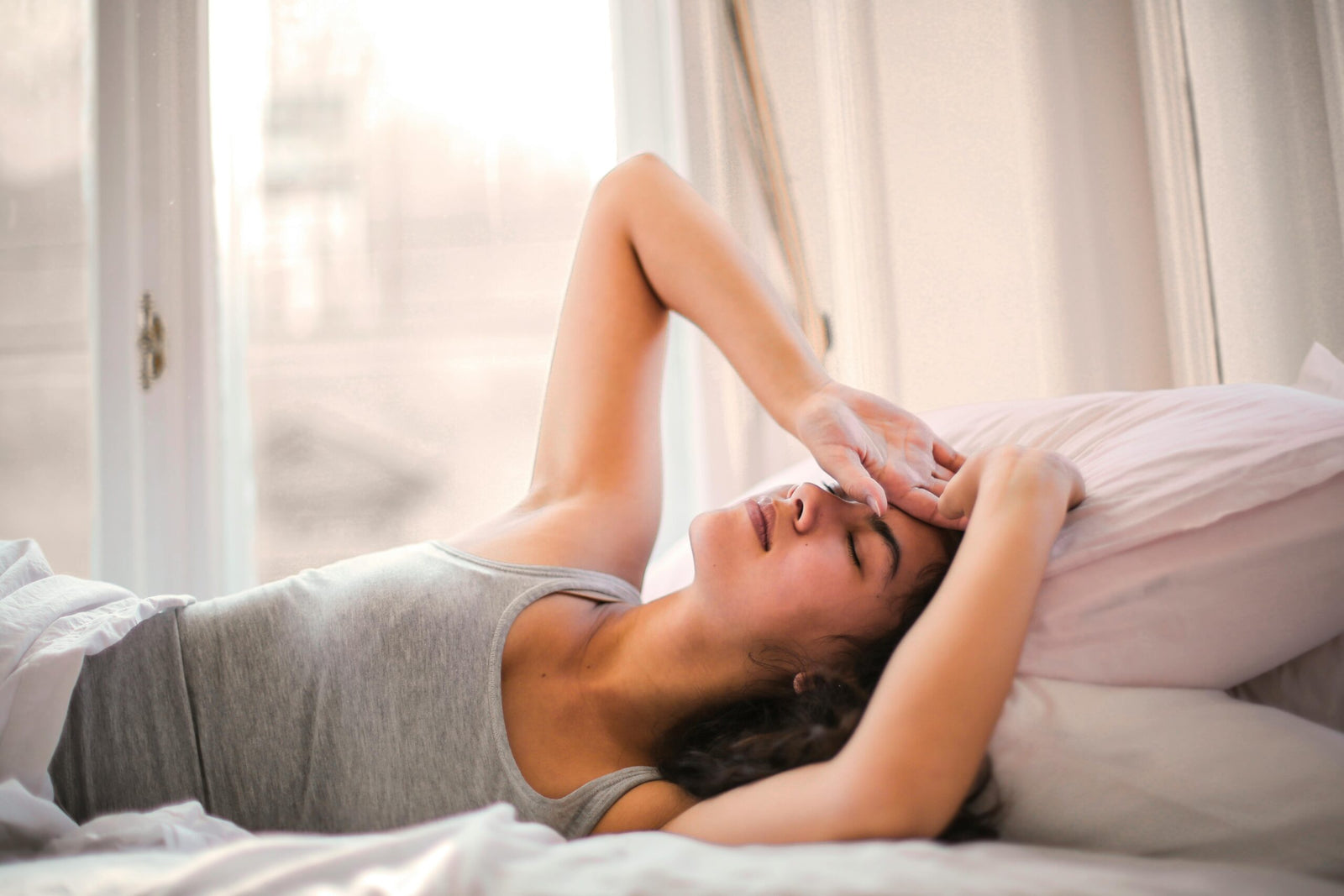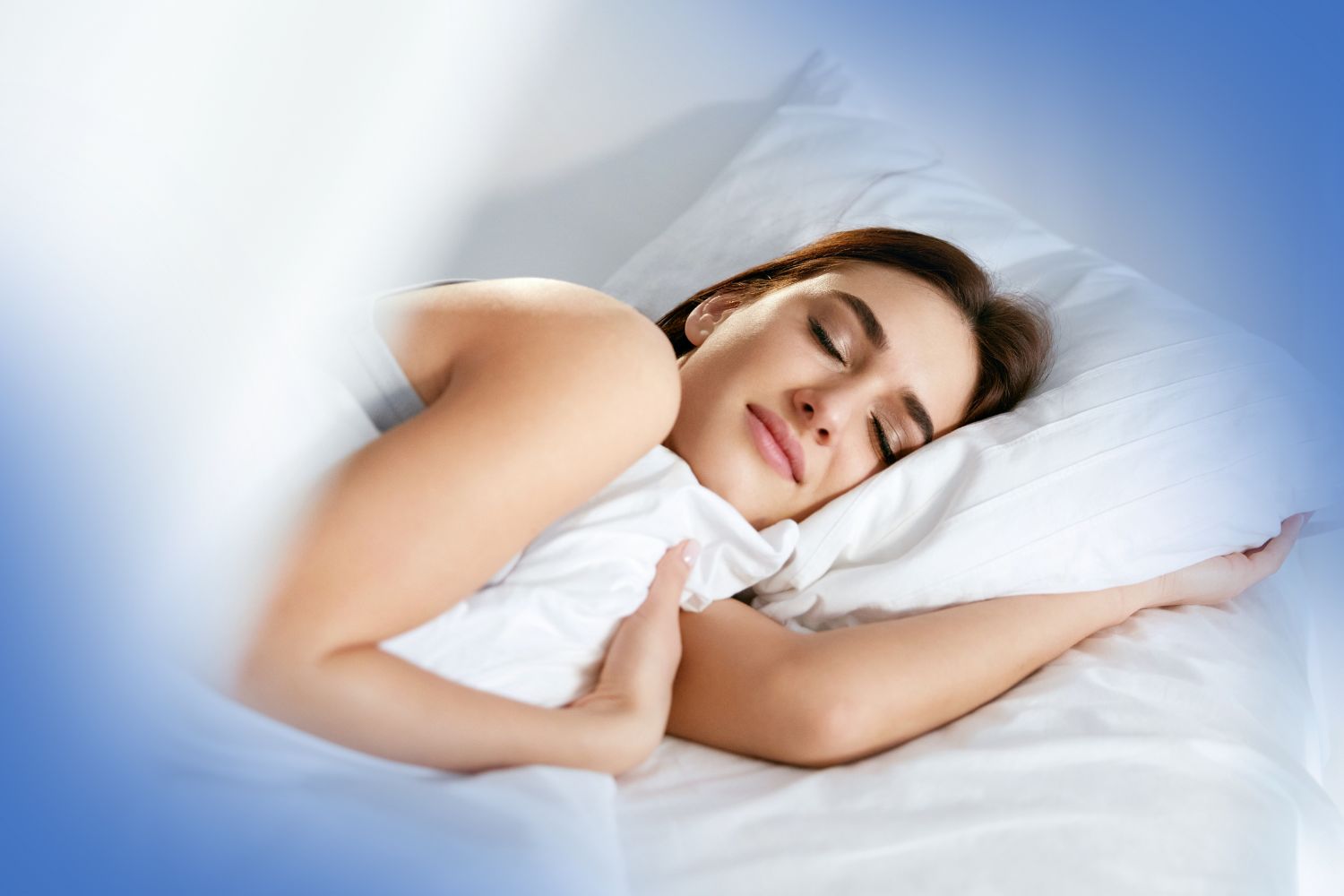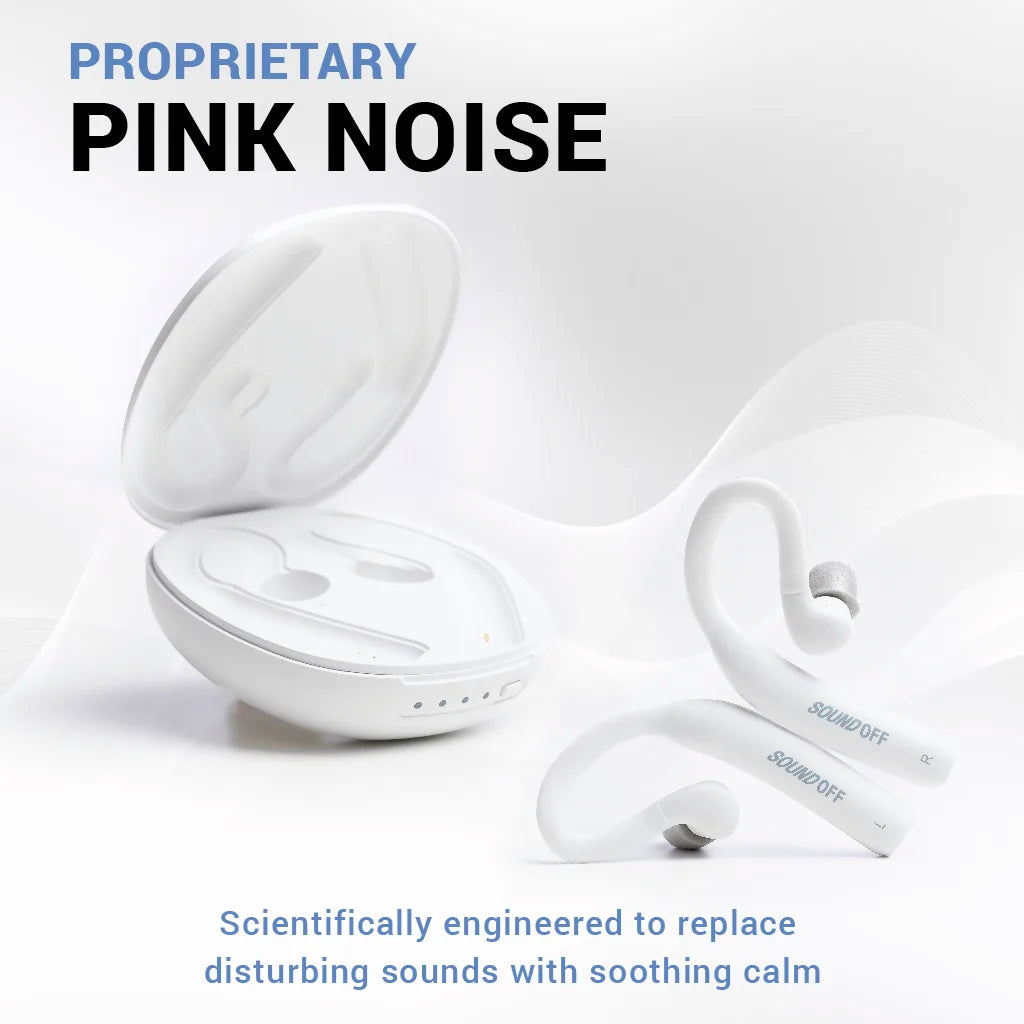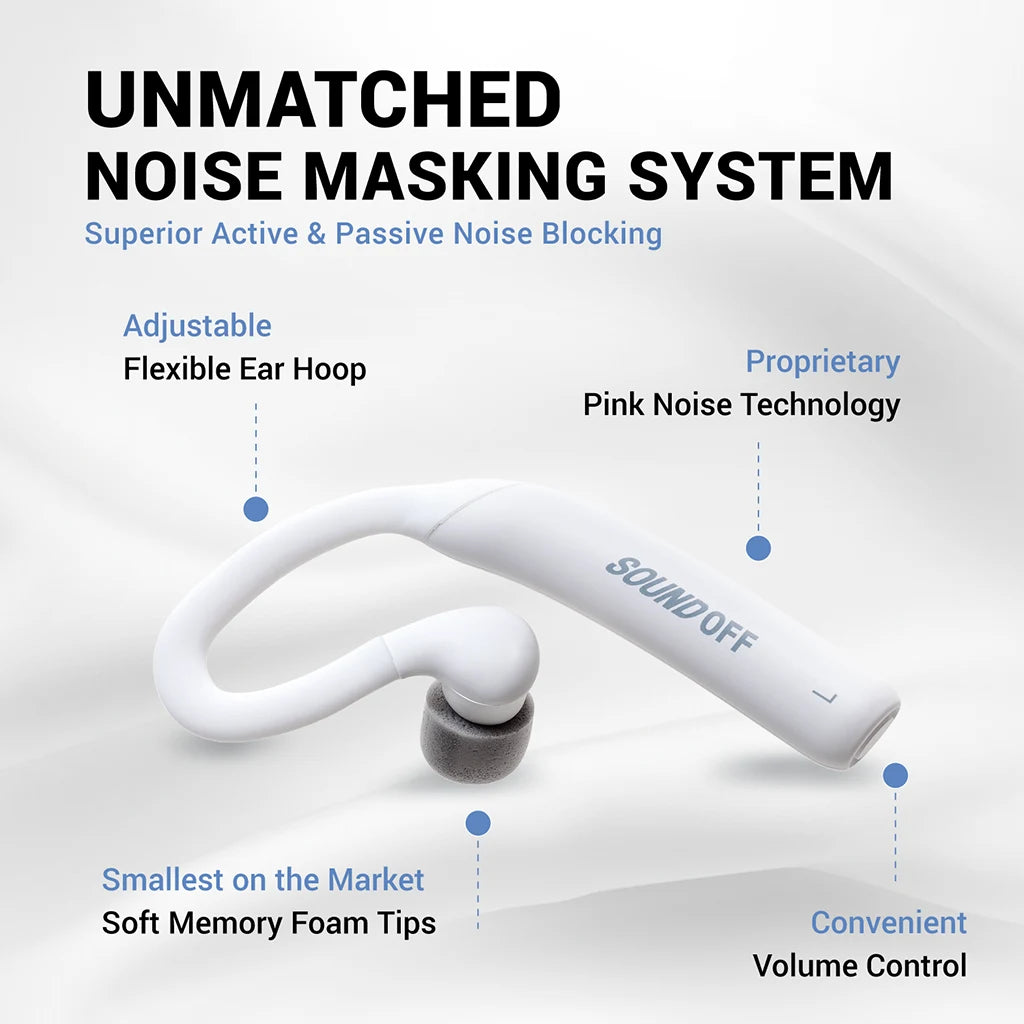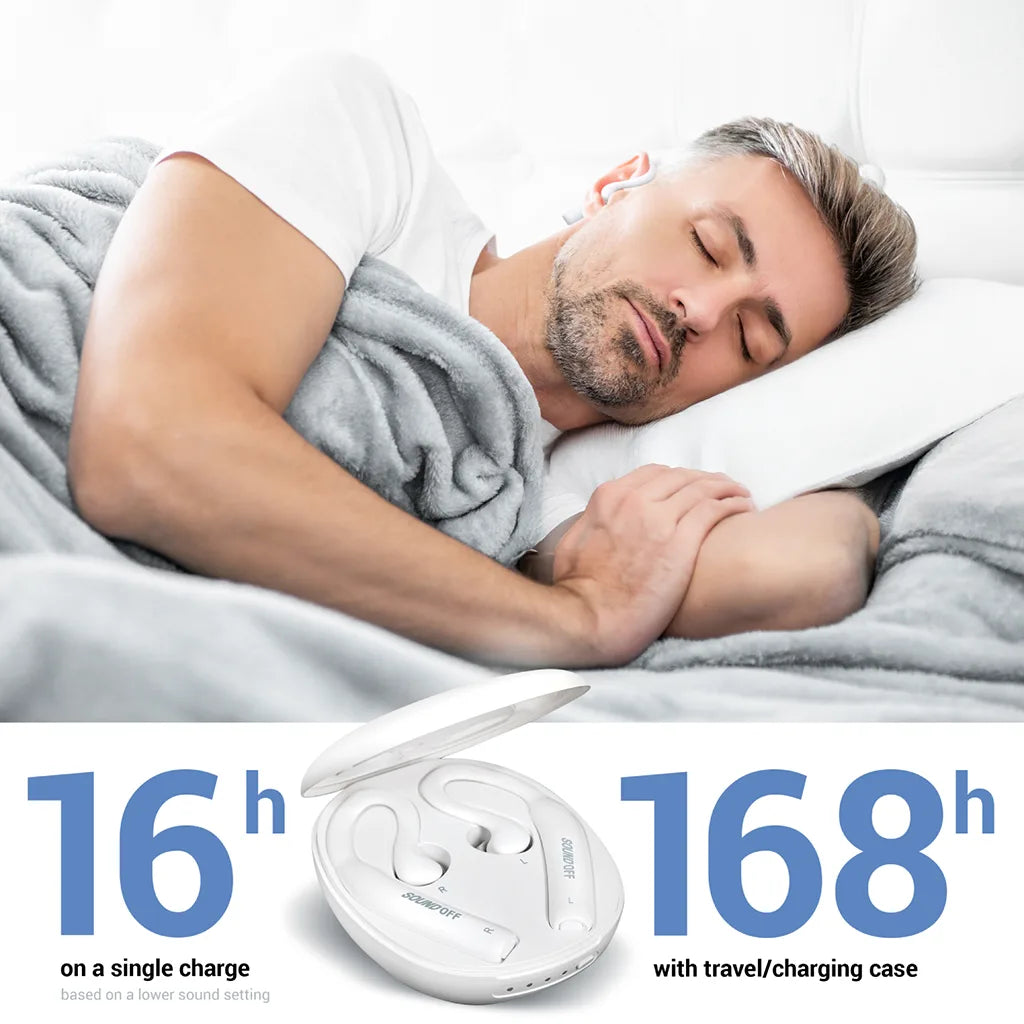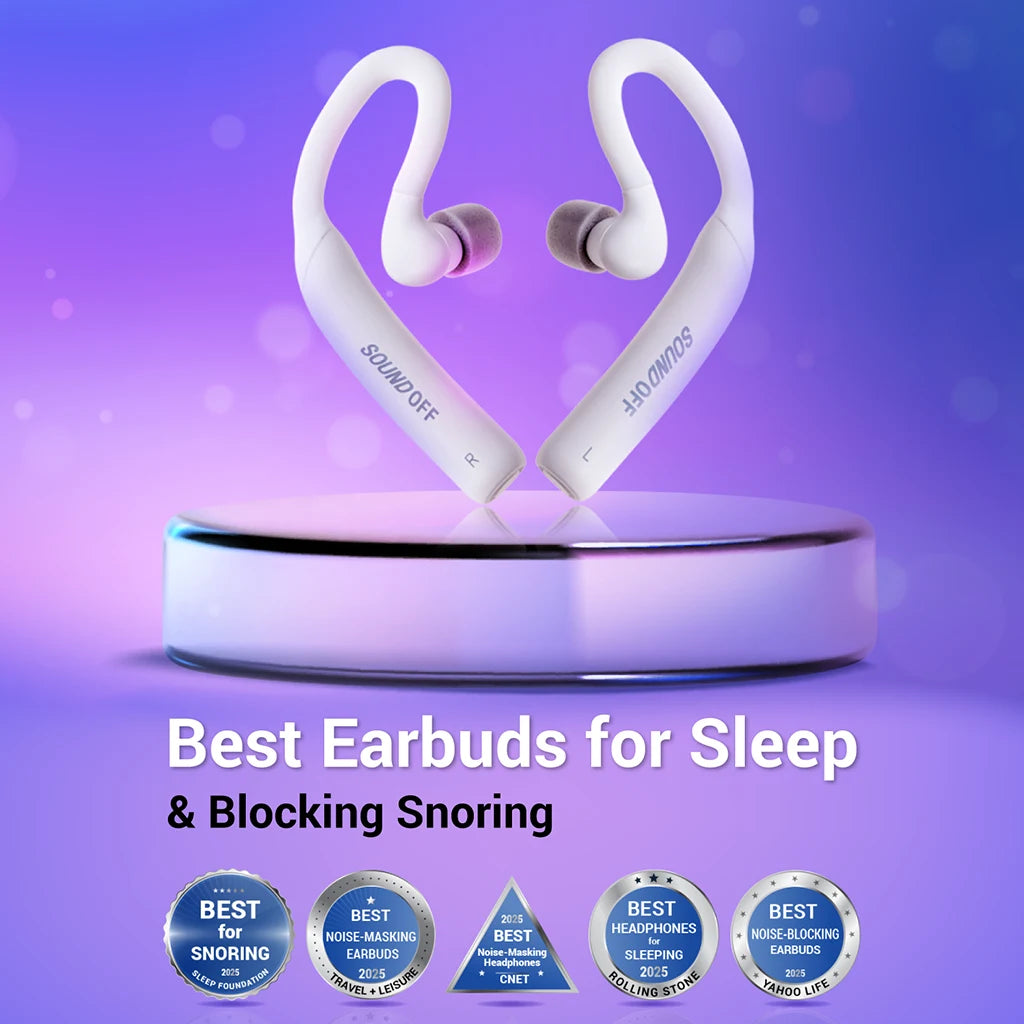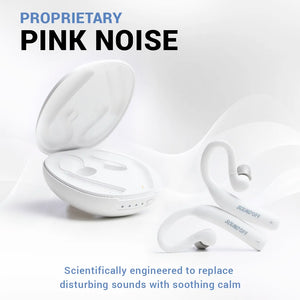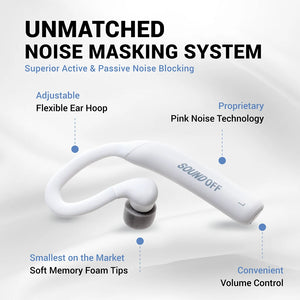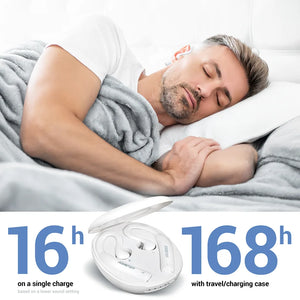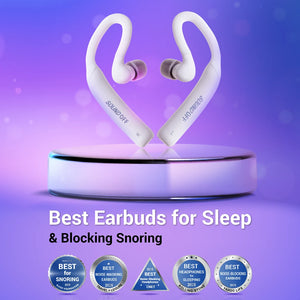
Table of Contents
- Identifying the Causes of Night Sweats and When to Consult a Doctor
- Environmental Factors
- Lifestyle
- The Role of Stress and Anxiety
- Hormonal Imbalances
- Medication-Induced
- Hyperhidrosis
- Hypoglycemia
- GERD
- Sleep Apnea
- Serious Infections
- Neurological Disorders
- Cancer
- Common Cancers Associated
- When to Seek Medical Attention
- Diagnosing Night Sweats
- Seeking Help
- Practical Tips
Night sweats, a term for excessive perspiration during sleep, are a common issue that can disrupt comfortable rest. This condition, often linked with difficulties in sleeping and sometimes depression, is not only a symptom of menopause but can also arise from various medical conditions and medication side effects. Although typically not a sign of a serious problem, it's crucial to recognize when medical advice is needed.
Identifying the Causes of Night Sweats and When to Consult a Doctor
Night sweats, characterized by excessive sweating during sleep, can be caused by a variety of factors, encompassing both environmental influences and more severe health conditions. Commonly, they are a result of sleeping in an environment that's too warm, whether due to heavy bedding, inadequate ventilation, or high room temperatures. Additionally, hormonal fluctuations play a significant role in triggering night sweats. These fluctuations can be due to natural life stages, such as menopause or puberty, or they may stem from hormonal disorders.
However, it's important to note that consistent and severe night sweating could be a symptom of a more serious underlying health issue. Medical conditions such as infections, cancers, and endocrine disorders can manifest through night sweats. Furthermore, certain medications, particularly those affecting hormone levels or the central nervous system, might also cause night sweats as a side effect. Therefore, if you experience night sweats regularly and they are not easily explained by environmental factors or known health conditions, it is advisable to seek medical evaluation. This is especially critical if night sweats are accompanied by other symptoms like unexplained weight loss, fever, or chronic fatigue, which could indicate a need for more comprehensive medical investigation.
Environmental Factors Affecting Night Sweats
The environment in which you sleep is crucial in determining the occurrence of night sweats. Excessive sweating during the night can often be attributed to overheating, a common issue in many sleeping spaces. This overheating can be caused by several factors within your bedroom. For instance, using heavy blankets can trap heat close to your body, increasing your body temperature. Similarly, mattresses that don't promote airflow and are made of non-breathable materials can contribute to a warmer sleeping environment. Additionally, wearing pajamas made from fabrics that do not allow your skin to breathe can exacerbate the problem.
To mitigate these issues and significantly lessen the frequency and intensity of night sweats, consider making adjustments to these aspects of your sleeping environment. Opting for lighter, breathable bedding can help regulate your body temperature throughout the night. This includes choosing blankets that are made from natural fibers or moisture-wicking materials. Likewise, investing in a mattress with better ventilation, possibly one specifically designed for cooling, can have a substantial impact. The choice of sleepwear is equally important; opt for pajamas made from lightweight, airy fabrics to ensure better temperature regulation. By carefully selecting your bedding, mattress, and sleepwear to promote a cooler sleeping environment, you can greatly reduce the discomfort caused by night sweats, leading to a more restful and uninterrupted night's sleep.
Lifestyle and Night Sweats
Lifestyle choices play a significant role in the occurrence of night sweats, with certain habits potentially increasing the likelihood of experiencing this uncomfortable condition. Consuming alcohol or spicy foods shortly before bedtime is known to trigger night sweats in many individuals. Alcohol can affect the body's temperature regulation, while spicy foods can raise your body heat, both leading to increased sweating during sleep. Additionally, engaging in physical exercise late in the evening can elevate your body temperature and heart rate, which might not have enough time to return to normal levels before you go to sleep, resulting in excessive sweating.
To help reduce the frequency and severity of night sweats, consider making adjustments to these lifestyle habits. Limiting or avoiding the intake of alcohol and spicy foods in the hours leading up to bedtime can be highly effective. Instead, opt for lighter meals and non-alcoholic beverages that are less likely to increase your body temperature. Similarly, rescheduling your exercise routine to earlier in the day can allow your body ample time to cool down and return to a resting state before bedtime. By making these simple yet impactful changes in your daily routine, you can create conditions more conducive to a comfortable, sweat-free sleep, enhancing the quality of your rest and overall well-being.
The Role of Stress and Anxiety in Night Sweats
Mental health disorders such as anxiety and stress can have a profound impact not only on psychological well-being but also on physical health, often manifesting as increased sweating, including night sweats. These conditions trigger the body's stress response, leading to various physical symptoms. Alongside excessive sweating, individuals suffering from anxiety and stress might experience a range of other symptoms, including constant worry and a sense of unease, disruptions in sleep patterns, gastrointestinal problems, and noticeable shifts in mood.
To alleviate these symptoms, it's crucial to tackle the underlying causes of stress and anxiety. This can be achieved through various approaches. Engaging in regular physical activities and exercises can be an effective way to reduce stress levels. Mindfulness practices such as meditation, yoga, or deep breathing exercises can also be beneficial in managing anxiety symptoms. Additionally, maintaining a healthy diet, ensuring adequate sleep, and establishing a routine can contribute positively to mental health.
In some cases, professional support might be necessary. This can include therapy sessions with a psychologist or psychiatrist, who can provide tailored strategies and potentially medication to help manage and reduce the symptoms of anxiety and stress. Furthermore, developing a strong support network of friends, family, or support groups can provide the emotional backing needed to cope with these mental health challenges. By addressing stress and anxiety at their roots, not only can the mental strain be eased, but also the physical manifestations like night sweats, leading to an overall improvement in quality of life.

Hormonal Imbalances and Night Sweats
Hormonal imbalances are a common cause of excessive night sweating, with several disorders being key contributors to this condition. Menopause is one of the most well-known causes, where changes in estrogen levels can lead to frequent episodes of night sweats. Similarly, low testosterone levels in men can also result in increased sweating during the night. Other hormonal conditions like carcinoid syndrome, which involves an overproduction of certain hormones by neuroendocrine tumors, and hyperthyroidism, characterized by an overactive thyroid gland, are also linked to excessive night sweating.
Understanding and managing these hormonal imbalances is crucial for alleviating night sweats and other associated symptoms. This may involve lifestyle adjustments, dietary changes, or medical interventions such as hormone replacement therapy or medication to regulate hormone levels. Regular medical check-ups and consultations with healthcare providers are essential for correctly diagnosing and treating these conditions. By addressing these hormonal disorders, not only can the discomfort of night sweats be reduced, but overall health and well-being can also be significantly improved.
Medication-Induced Night Sweats
Night sweats can often be a side effect of various medications, and understanding this link is crucial for those who experience this uncomfortable condition. Certain categories of drugs are more commonly associated with causing night sweats. Steroids, for example, can disrupt the body's hormonal balance, leading to increased sweating. Antidepressants, including both tricyclic and selective serotonin reuptake inhibitors (SSRIs), are known to affect the body's temperature regulation mechanisms, which can result in excessive sweating, particularly at night.
Pain relievers, such as nonsteroidal anti-inflammatory drugs (NSAIDs) and acetaminophen, can also contribute to night sweats in some individuals. Additionally, medications used to manage diabetes, especially those that affect insulin levels, can cause fluctuations in blood sugar levels that may trigger sweating. Hormone therapy medications, used for a variety of conditions including menopausal symptoms and hormonal imbalances, are another common culprit.
If you are experiencing night sweats and suspect that they may be linked to your medication, it is advisable to consult with a healthcare provider. It's important to discuss the severity of the night sweats, how they impact your sleep quality, and any other related concerns. Your healthcare provider can review your medication regimen and may suggest alternatives, dosage adjustments, or additional treatments to mitigate this side effect. They can also provide guidance on whether the night sweats are indeed medication-related or if further investigation is needed to rule out other potential causes. Addressing medication-induced night sweats is vital for ensuring restful sleep and maintaining overall health and well-being.
Hyperhidrosis and Its Impact on Night Sweats
Hyperhidrosis is a condition marked by excessive sweating, significantly more than what is necessary for regulating body temperature. This condition can occur on its own, known as primary hyperhidrosis, or as a symptom of another underlying medical issue, termed secondary hyperhidrosis. The excessive sweating associated with hyperhidrosis often goes beyond normal responses to heat or exercise and can be a continuous issue, significantly impacting daily activities and quality of life.
The impact of hyperhidrosis can be extensive, affecting social, professional, and personal aspects of life. People with this condition may find themselves self-conscious or embarrassed, leading to social withdrawal or anxiety, especially in situations where their excessive sweating is noticeable. The practical challenges include frequently needing to change clothes, difficulties in handling tools or equipment, and potential skin infections due to damp skin conditions.
Managing hyperhidrosis is important for those affected by it. Treatment options vary based on the severity and the underlying cause, if known. For primary hyperhidrosis, treatment may include prescription-strength antiperspirants, iontophoresis (a procedure that uses electrical currents to reduce sweat), Botox injections to block nerve signals that trigger sweating, and in some cases, surgery. For secondary hyperhidrosis, addressing the underlying health issue can often alleviate the sweating problem.
It's important for individuals experiencing excessive sweating to consult with a healthcare provider for a proper diagnosis and to determine the most effective treatment strategy. A healthcare provider can also provide advice on lifestyle adjustments and coping mechanisms to manage the symptoms of hyperhidrosis effectively, thereby improving the individual's overall quality of life.
Hypoglycemia and Night Sweating
Hypoglycemia, commonly known as low blood sugar, is a condition that can lead to sweating during sleep, especially in individuals with diabetes. This condition arises when the glucose level in the blood drops below the normal range, affecting the body's ability to function properly. Hypoglycemia can be particularly concerning during sleep, as individuals may not be aware of the early warning signs and are unable to take immediate action.
Apart from night sweating, hypoglycemia manifests several other symptoms that can range from mild to severe. Shaking or tremors are common signs, often one of the first indications that blood sugar levels are too low. Hunger is another typical symptom, even if meals were consumed recently. Fatigue and weakness are also frequently reported, as the body lacks the energy it needs from glucose. Disorientation and confusion can occur, affecting an individual's ability to think clearly or respond appropriately. In severe cases, hypoglycemia can lead to more serious symptoms such as seizures or loss of consciousness.
If you experience symptoms of hypoglycemia, especially recurrent episodes of night sweats, it is important to consult with a healthcare professional. They can provide guidance on managing your diabetes and hypoglycemia, including potential adjustments in your diabetes management plan to reduce the risk of low blood sugar episodes. Proper management of hypoglycemia is essential not only to prevent discomfort like night sweating but also to avoid more serious health complications.
GERD and Night Sweats
Gastroesophageal reflux disease (GERD) is a digestive disorder that can lead to a range of uncomfortable symptoms, including night sweats. This condition occurs when stomach acid frequently flows back into the tube connecting the mouth and stomach (esophagus). This backwash, or reflux, can irritate the lining of the esophagus and lead to various symptoms, notably at night.
Alongside night sweats, GERD commonly causes heartburn, a burning sensation in the chest that usually occurs after eating and may be worse at night. Chest pain, often mistaken for heart-related issues, can also accompany GERD. Difficulty swallowing, known as dysphagia, is another symptom where individuals may feel like food is sticking in their throat or chest. Additionally, GERD can disrupt sleep patterns, leading to insomnia or restless nights due to discomfort or pain.
Frequent occurrence of these symptoms is a key factor in diagnosing GERD. If these symptoms, including night sweats, are experienced more than twice a week, it may indicate the presence of gastroesophageal reflux disease. Managing GERD typically involves lifestyle changes and over-the-counter or prescribed medications. Lifestyle modifications can include dietary changes, such as avoiding foods and drinks that trigger reflux (like spicy foods, alcohol, and caffeine), eating smaller meals, and not eating close to bedtime. Elevating the head while sleeping and maintaining a healthy weight can also reduce symptoms.
If you experience persistent symptoms of GERD, including night sweats, it's important to consult a healthcare provider. They can provide an accurate diagnosis and recommend effective treatments to manage the condition, thereby improving sleep quality and overall comfort. Proper management of GERD not only alleviates night sweats and other symptoms but also prevents potential complications associated with the disease.
Sleep Apnea and Night Sweats
Sleep apnea is a significant sleep disorder characterized by frequent interruptions in breathing during sleep. These interruptions, where breathing stops intermittently, can occur multiple times throughout the night and are often unnoticed by the individual. This condition not only disrupts the quality of sleep but can also lead to night sweating. The body's natural response to the cessation of breathing is to increase stress hormones, which in turn can cause excessive sweating. Beyond night sweats, sleep apnea manifests various other symptoms, including profound daytime fatigue. This fatigue occurs despite the individual having seemingly sufficient sleep duration, primarily because the sleep quality is poor.
If sleep apnea is suspected, especially when accompanied by symptoms like night sweats, it is critical to seek medical evaluation. This can include a sleep study to monitor the individual's breathing patterns during sleep. Addressing sleep apnea is essential not only to alleviate symptoms like night sweating and fatigue but also to prevent the potential long-term health consequences associated with untreated sleep apnea, such as cardiovascular problems and impaired cognitive function. Treatment options vary, including lifestyle modifications, use of devices like CPAP machines, or even surgery in severe cases, all aimed at ensuring uninterrupted breathing during sleep and improving overall sleep quality.
Serious Infections Causing Night Sweats
Various infections are known to cause night sweats as one of their symptoms. These include serious conditions like tuberculosis, a contagious bacterial infection primarily affecting the lungs, and endocarditis, an infection of the heart valves. Osteomyelitis, which is an infection in the bones, and brucellosis, typically contracted from infected animals or animal products, can also lead to excessive sweating during the night. Additionally, viral infections such as HIV and mononucleosis, commonly known as 'mono', are associated with night sweats. Fungal infections, which can affect different parts of the body, are also known to cause this symptom.
These infections often present with a range of other symptoms alongside night sweats. Fever is a common sign, indicating the body's response to infection. Body pain and general weakness are also frequently experienced, as the body directs its energy towards fighting the infection. Significant weight loss and a reduction in appetite can occur as well, further impacting an individual's overall health.
Given the severity of these underlying conditions, it's imperative to seek medical advice if you experience night sweats along with any of these accompanying symptoms. Early diagnosis and treatment are key to managing these infections effectively and preventing potential complications. A healthcare professional can conduct the necessary tests to identify the specific infection and recommend the appropriate course of treatment, which may include antibiotics, antiviral medications, or other targeted therapies.
Neurological Disorders and Night Sweats
Night sweats can occasionally indicate underlying neurological issues, although this is relatively rare. These conditions affect the nervous system in various ways and can manifest symptoms like excessive sweating during sleep. One such condition is a stroke, where disrupted blood flow to the brain can have wide-ranging effects on bodily functions, including temperature regulation. Autonomic dysreflexia is another serious condition, primarily affecting individuals with spinal cord injuries. It leads to overactivity of the autonomic nervous system, causing symptoms such as night sweats.
Autonomic neuropathy, a disease affecting the autonomic nerves, can also lead to abnormal sweating patterns, including during the night. This condition can arise from various causes, including diabetes and certain neurological disorders. Syringomyelia, characterized by the formation of a fluid-filled cyst within the spinal cord, can disrupt the normal function of the nervous system, leading to symptoms like night sweats. Each of these conditions affects the body's autonomic functions, which control involuntary actions, including sweating.
Given the complexity and potential severity of these neurological issues, experiencing night sweats along with other neurological symptoms should prompt a medical evaluation. Diagnosis and management of these conditions often require a multidisciplinary approach, involving neurologists and other specialists. Treatment and management strategies vary depending on the specific condition and individual circumstances but may include medications, physical therapy, and in some cases, surgery. Addressing these underlying neurological issues is crucial for reducing night sweats and improving overall health outcomes.
Cancer and Night Sweats
While not a frequent occurrence, night sweats can occasionally be a symptom of cancer. This association is typically more likely when night sweats are persistent and cannot be easily explained by other more common causes like a warm sleeping environment. In cases where cancer is the underlying cause, night sweats are usually not the sole symptom. Instead, they are often accompanied by other signs that might initially resemble symptoms of less serious conditions, such as the flu.
These additional symptoms can include a persistent sense of fatigue that doesn't improve with rest, a general feeling of unwellness, or malaise. Particularly telling are signs like a persistent fever that cannot be attributed to a known infection, and unexplained weight loss, which means losing weight without changes in diet or exercise habits. Such symptoms, especially when they occur in tandem with night sweats, warrant a consultation with a healthcare provider.
Early detection and diagnosis are crucial in managing cancer effectively. Therefore, if you're experiencing a combination of night sweats, unexplained weight loss, persistent fever, and ongoing fatigue, it's important to seek medical advice. A doctor can assess these symptoms and, if necessary, conduct further investigations to determine their cause. This may include blood tests, imaging studies, or other diagnostic procedures to either rule out or confirm the presence of cancer. By recognizing these symptoms early and consulting a healthcare professional, you can ensure prompt and appropriate medical attention.
Common Cancers Associated with Night Sweats
Certain types of cancer are frequently associated with night sweats as one of their symptoms. Notably, Hodgkin’s lymphoma and non-Hodgkin’s lymphoma, both of which are cancers of the lymphatic system, have night sweats commonly reported by patients. Leukemia, a cancer of blood-forming tissues including bone marrow, is another type where night sweats can be a significant symptom.
Pain in various parts of the body can also occur, depending on the cancer type and its progression. People with leukemia may experience bone pain, whereas those with lymphomas might report chest or stomach pain. The presence of these symptoms, particularly when they occur alongside night sweats, should prompt a medical evaluation. Early detection and diagnosis of these cancers are crucial for effective treatment. If you experience a combination of these symptoms, consulting with a healthcare provider for a thorough examination and appropriate diagnostic tests is advisable. Early intervention can significantly improve treatment outcomes and overall prognosis in these cases.

When to Seek Medical Attention for Night Sweats
Occasional night sweats that do not significantly disrupt sleep may not be a cause for concern. However, if you regularly experience them, have trouble sleeping, or have other worrying symptoms, it is advisable to consult a healthcare professional. Symptoms to watch for include unexplained weight loss, body aches, high fever, chronic cough, and stomach pain. A doctor can assist in identifying the underlying cause of night sweats and develop an appropriate treatment plan.
Diagnosing Night Sweats
To diagnose the cause of frequent or disruptive night sweats, your doctor will review your symptoms, health history, and medications, examine your family history, perform a physical examination, and possibly order laboratory or imaging tests. If necessary, you may be referred to a specialist for further evaluation and treatment.
Seeking Help for Night Sweats
While night sweats are generally not alarming, they can indicate an underlying medical condition needing treatment, particularly in cases like early menopause or primary ovarian insufficiency. Frequent night sweats, especially when accompanied by fever, cough, or unexplained weight loss, may signify a serious medical issue. For individuals with lymphoma or HIV, night sweats can indicate progression of the condition.
Practical Tips for Alleviating Night Sweats
If your night sweats are not accompanied by other concerning symptoms, consider these strategies:
- Ensure a cooler sleeping environment by opening a window or using a fan.
- Opt for breathable bedding, such as light quilts or moisture-wicking sheets.
- Adjust the timing of physical activities, avoiding exercise right before bed.
- Steer clear of known sweat triggers like spicy foods, smoking, and alcohol before bedtime.
While night sweats are often not a sign of a severe health issue, understanding their potential causes and when to seek medical advice is essential for maintaining overall health and well-being. By addressing environmental factors, lifestyle choices, and underlying health conditions, you can effectively manage and reduce night sweats, leading to more restful nights and improved quality of life.
References:
- Mayo Clinic: https://www.mayoclinic.org/diseases-conditions/night-sweats/symptoms-causes/syc-20353478
- Sleep Foundation: https://www.sleepfoundation.org/bedroom-environment/night-sweats
- The BMJ: https://www.bmj.com/content/372/bmj.n466
- Cleveland Clinic: https://health.clevelandclinic.org/night-sweats/
- American Academy of Family Physicians (AAFP): https://www.aafp.org/pubs/afp/issues/2020/1115/p599.html
- Patient.info: https://patient.info/signs-symptoms/night-sweats-2
- WebMD: https://www.webmd.com/menopause/guide/night-sweats
- Healthline: https://www.healthline.com/health/night-sweats

